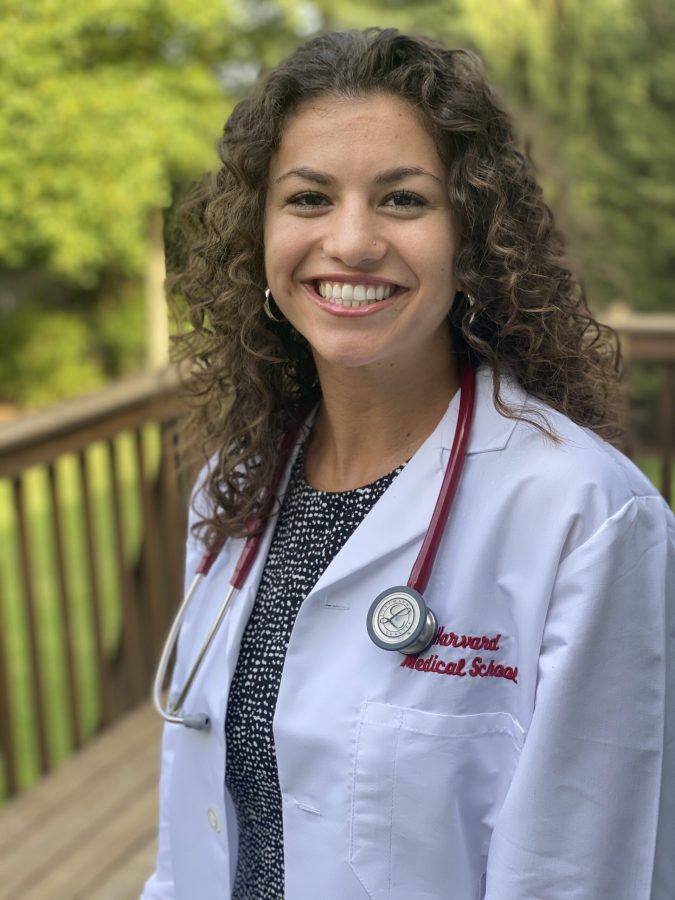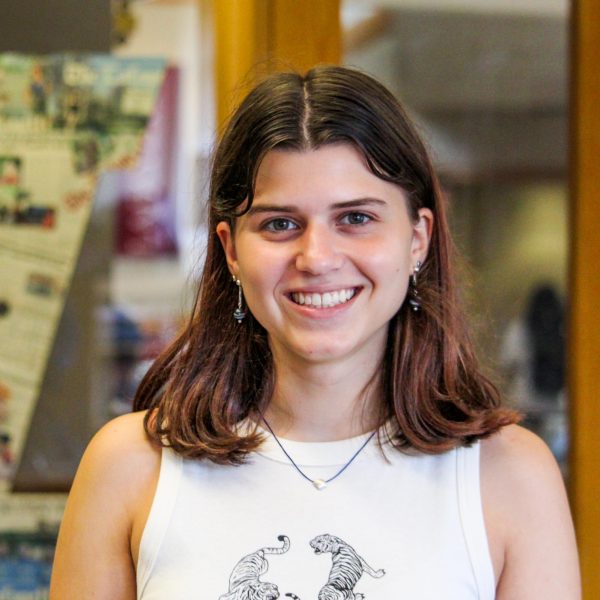Morena Koorie ’20 processes COVID-19 tests at the Easton Campus of St. Luke’s Hospital, where she started working in January. And although she and many of her colleagues have been vaccinated, Koorie still comes in direct contact with COVID-19 samples, which means she has to be extra careful.
“You go home and everything gets bleached all the time. Some of my clothes have bleach stains all over them because you just don’t want to risk anything,” she said.
With most medical professionals above the age of 55 retiring this year, doctors, nurses and lab technicians have been working hard to support the understaffed hospital system. Young professionals working in the medical field like Koorie can help lighten the burden, but the increased patient load and risks come as a challenge for these recent grads.
Koorie said she helps the overworked staff where she can, but she noted that it will take a long time for St. Luke’s to recover from the effects of the pandemic.
But aside from the stress of the work, Koorie said that her department bubble has been a positive work environment, as well as a great place to gain difficult-to-secure lab experience, which is highly valuable to young medical professionals.
“It’s just very weird for us to be happy where we are and then step outside [to the rest of the hospital],” she said.
Koorie is currently in the process of applying to medical school. She said that working at St. Luke’s has given her insight into different perspectives of the medical field.
“When I do become a future doctor, hopefully [the pandemic] will make me a lot more appreciative for the stress that labs undergo,” she said. “The hospital lab is really appreciative for the amount of work that nurses and doctors do.”
McKenna Beyer ‘20 has had a similar experience. She is currently selling medical devices for orthopedic and trauma surgeries at Geisinger Hospital through the medical device manufacturer Acumed.
While she sometimes takes part in surgeries, Beyer works primarily on the business side of the medical field. Her job responsibilities include facilitating surgeon meetings, which look very different during a pandemic, she said.
“[Meetings] have all had to be pushed online. So, instead of me doing that in person, it’s me calling [doctors] on the phone or Zoom meetings—which is not as effective, but I think this is how things are going to be for a while,” she said.
Although Beyer does not work directly with patients, she nonetheless emphasizes the stress experienced by all hospital staff. She said that outbreaks generate a “sad demeanor over the entire hospital.” Additionally, COVID-19 spikes have provoked a decline in surgeries.
Beyer said she does not know what the future holds for her job or the hospital, but she has great respect for those on the frontlines. While this is not the graduation plan she expected, she said she is nevertheless grateful to have had such a humbling experience.
“It’s definitely something that people will talk about for years and years to come, so it will be cool to be part of history,” she said.
Other Lafayette alumni in the medical field have taken a different post-graduate path. Sarah Blitz ’20 is currently in her first year at Harvard Medical School. After a remote fall semester, Blitz is now taking mostly virtual classes on campus.
Online medical school has had its drawbacks for Blitz. Transitioning from an online fall semester to an in-person spring semester created a learning curve that was difficult to overcome. Additionally, she said she lamented the missed opportunity to make strong connections with her peers.
“I know all of my classmates are going to grow up to do incredible things. To not have the opportunity to meet all these people from all over the world who have been doing all of these amazing things before med school was kind of disappointing,” she said.
Since January, Blitz has visited the hospital once a week to interview patients and run physical exams. However, she said that adhering to strict COVID-19 guidelines within the hospital makes the usual sense of camaraderie between doctors and patients feel more “mechanical.”
Through meeting doctors who have been directly impacted by COVID-19, Blitz has gained a new respect for the medical profession.
“I feel very humbled to be in this field, just hearing about the amazing things people have done,” she said. “It’s something to aspire to be like.”























































































































